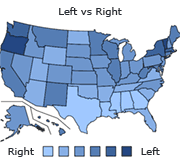How to tell if you're a real Cajun
The word "Cajun" is an aphetic variant of Acadian. Some suggest that it came from the name of the ancient Greek region of Arcadia; others suggest that it is a derivation of the Mikmaq Indian word cadique, meaning "a good place to set up camp." Cajun music is rooted in the music of the French-speaking Catholics of Canada and transformed to a unique sound of the Cajun culture. In earlier years the fiddle was the predominant instrument, but gradually the accordion has come to share the limelight. Cajuns live to eat. Outside Louisiana the distinctions between Cajun and Louisiana Creole cuisine have been blurred. However, Creole dishes tend to be more sophisticated continental cuisine using local produce. Cajun food is rural, more seasoned, sometimes spicy, and tends to be more hearty. Many well-known Cajun dishes were originally centered on wild game, rice and other local ingredients.
Cajuns, along with other Cajun Country residents, have a reputation for a joie de vivre (French for "hearty enjoyment of life"), in which hard work is appreciated as much as "passing a good time." In the culture, a coup de main (French for "to give a hand") is an occasion when the community gathers in order to assist one of their members with time-consuming or arduous tasks. Examples might include a barn raising, harvests, or assistance for the elderly or sick. Laisse le bon temps rouler, is a cliché phrase of the local culture, which means "let the good times roll." Nearly every village, town and city of any size has a yearly festival, celebrating an important part of the local economy. The majority of Cajun festivals include a fais do-do ("go to sleep" in French) or street dance, usually to a live local band. Crowds at these festivals can range from a few hundred to more than 100,000.
GoToQuiz Presents...
Our "Big Five" Personality Assessment Quiz!

